Funnier: Say what?

 It actually doesn’t matter where you have been swimming, or where you’re going to, but it does better where you’re swimming right now. It is only when we identify what grows in this moment that we have the chance to live fully.
It actually doesn’t matter where you have been swimming, or where you’re going to, but it does better where you’re swimming right now. It is only when we identify what grows in this moment that we have the chance to live fully.
Before & after – this leads to growth in our heads. Now – this leads to growth in our hearts.
It is within this mode of operating that we can grow and grow and grow.We find this by living each moment fully. That creates moments that are more memorable & a future that is more attainable.
You just watch.
 One day the Buddha held up a flower in front of an audience of 1,250 monks and nuns. He did not say anything for quite a long time. The audience was perfectly silent. Everyone seemed to be thinking hard, trying to see the meaning behind the Buddha’s gesture.
One day the Buddha held up a flower in front of an audience of 1,250 monks and nuns. He did not say anything for quite a long time. The audience was perfectly silent. Everyone seemed to be thinking hard, trying to see the meaning behind the Buddha’s gesture.
Then, suddenly, the Buddha smiled. He smiled because someone in the audience smiled at him and at the flower. The name of that monk was Mahakashyapa. He was the only person who smiled, and the Buddha smiled back and said, “I have a treasure of insight, and I have transmitted it to Mahakashyapa.”
That story has been discussed by many generations of Zen students, and people continue to look for its meaning. To me the meaning is quite simple. When someone holds up a flower and shows it to you, he wants you to see it. If you keep thinking, you miss the flower. The person who was not thinking, who was just himself, was able to encounter the flower in depth, and he smiled.
That is the problem of life. If we are not fully ourselves, truly in the present moment, we miss everything. When a child presents himself to you with his smile, if you are not really there—thinking about the future or the past, or preoccupied with other problems—then the child is not really there for you. The technique of being alive is to go back to yourself in order for the child to appear like a marvelous reality. Then you can see him smile and you can embrace him in your arms.
~ Thich Nhat Hanh
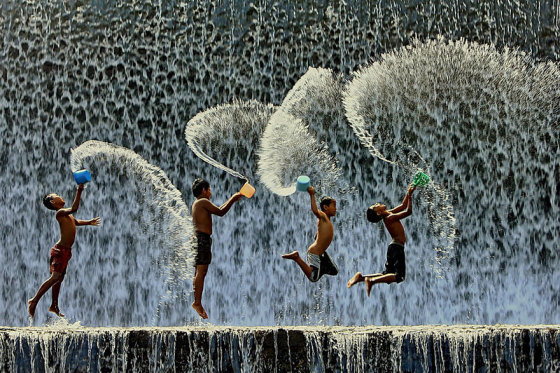
In the old days, one of the cool jobs I was lucky enough to fall into was teaching drama at a junior high. We had a great time. One of the things we did was improvise scenes.
It was easy – we’d put two or three kids on the floor, give them a first line (something like “What do I do now?” or “Why, tell me why you had to do that!” or “You’re not the person I thought you were!” or something), and then say “Go!”
Then their job – everybody else’s – was to carry the scene forward with whatever came up. No rules (junior high kids LOVE that), no script, with a wide-open road as to where things might go. Usually it was fun – sometimes really funny (usually unintentionally), sometimes emotional, sometimes as mixed up as life. The part we were looking for: When you’re off-script, it’s a little scary, but often honest.
Every so often, we’d get it going, maybe with saying, “What do I do now?” and…the kid would respond with, “I don’t know.” Then the first person would say, “OK,” and we’d be done. So then we’d use the same people and start it with, “Wow, you look funny!” and they might respond, “Oh, OK. Thanks for telling me.” And we were done.
We really didn’t want things to die there.
So then we had to make some rules for this no-rule lesson plan. Frankly, I don’t remember them, ’cause I used to, well, improvise. But I heard that Tina Fey (in this article) has these as her Improv Rules:
The Rules of Improvisation
Always Agree.
Say Yes, AND…
After the “and” add new information.
Focus on the Here and Now.
Establish the location.
Be Specific, provide details.
Now that changes things. That makes you want to stay in the conversation, and see how it turns out. Part of improv comedy’s genius is the ability, even necessity, to say, “Yes! And…” even in the face of the strangest things. In real life, we just end the conversation & walk on.
Wait. Maybe we don’t have to create a “real life” like that. The more I think about it, I like the Rules of Improv. Good way to wrestle with the stuff that comes our way.
I have an early night, so I think maybe you & I will visit about this some more. Because that’s the way you are…I say something, and no matter what, you agree, so that you can say “Yes! And…” (not “Yes! But…”) and we take it from there. And that’s why it’s fun talking to you. I love it.
Love you & the way we make all this up, together.
Brother Ian
+++++++++++++
See more of Agoes Antara’s awesome work.
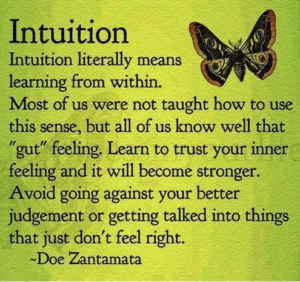 As the vibration of this planet continues to accelerate, we are being called to awaken our intuitive nature. We are starting to clearly see how our own perception itself creates our outer reality and our life experience. And as we are moving from the age of information towards the age of intuition we are outgrowing the old paradigms of fear, anger, and separation. Flipping the script and discovering a high-vibrational perception which supports oneness, compassion, love, co-creation and joy. Have you ever noticed that you and I are living in a phase of transition? The more we learn how to feel our own personal vibration and work intentionally with energy, the more we can transform ourselves and our lives. To use our intuition is to step into this new time.
As the vibration of this planet continues to accelerate, we are being called to awaken our intuitive nature. We are starting to clearly see how our own perception itself creates our outer reality and our life experience. And as we are moving from the age of information towards the age of intuition we are outgrowing the old paradigms of fear, anger, and separation. Flipping the script and discovering a high-vibrational perception which supports oneness, compassion, love, co-creation and joy. Have you ever noticed that you and I are living in a phase of transition? The more we learn how to feel our own personal vibration and work intentionally with energy, the more we can transform ourselves and our lives. To use our intuition is to step into this new time.
Intuition is the ability to acquire knowledge without factual proof, evidence or conscious reasoning, or without understanding how the knowledge was received. It means that our perception is shifting and the way we perceive life.
Intuition development
In the new perception, there is no past, present, and future. There is only the now. Intuitive guidance will not come through when you are projecting into the past or the future. Intuition comes when you are centered into the present moment. This inner knowing comes when the mind is clear and not distracted. With developing/remembering our intuitive nature is to tune into the present moment more and more. Our intuition grows with awareness, practice and spiritual growth.
We are all born intuitive
We all have been born with intuition. It is like an extra muscle that we are learning how to train. And is not a gift. It is inherent in us all. All human beings are intuitive beings. Just like we learn how to ride a bicycle, we can learn how to harness to power of our innate intuitive power. At one point in our lives we either develop our intuitive abilities or numbing down our intuitive voice by relying on the logical mind. Making decisions from logic rather from a heart based place.
Listen, trust and apply
Listen to and trust and apply your intuition in your daily life. As you become more conscious you become more capable of tuning into your intuition. You will learn how to differentiate between deep knowing and your mind chattering. You will have to learn how to see the difference between your logic mind and your intuitive heart. Your heart is also like a gateway to your higher self. Intuition never screams or demands, it comes with ease and grace. It never does any harm.
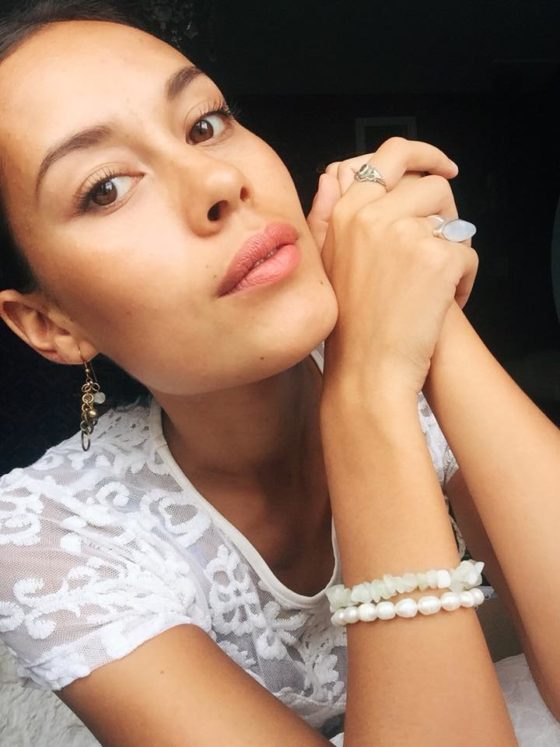
We learn through experience
Let’s do a fun exercise. Focus on a question you would like to know about yourself or a situation. Try to keep it as clear as possible, so that it will help you to receive the clearest answer. Bring yourself into this present moment by taking a few deep breaths and focus on your external surroundings. Close your eyes and start asking a question you would like to receive guidance on.
If you are interested in diving deeper into your intuitive nature. I developed a free 3-online training where you will be receiving 3 tools to awaken and train your intuitive abilities. Sign up for free here.
With all of my love from Ubud, Bali
Jessica Francis – Intuitive guidance for the Soul
The original posting (and Jessica’s work) is posted here:
http://www.littlerebelbuddha.com/moving-into-the-age-of-intuition/

This little prayer (known to monks, worldwide) is attributed by many to St. Francis, and is notable in that it doesn’t “ask for something;” instead it simply asks that we be allowed to channel peace to the people around us.
I’ve always thought it was a pretty robust expression of that little bit in the Lord’s Prayer that says, “Thy will be done.”
Which means we get out of the way & let it flow…and I love the job Sarah McLachlan does with her musical version of it, below.
Let it wash over you….
Prayer of Saint Francis of Assisi
Lord, make me an instrument of your peace.
Where there is hatred, let me sow love;
where there is injury, pardon;
where there is doubt, faith;
where there is despair, hope;
where there is darkness, light;
and where there is sadness, joy.
Divine Master, grant that I may not so much seek
to be consoled as to console;
to be understood as to understand;
to be loved as to love.
For it is in giving that we receive;
it is in pardoning that we are pardoned;
and it is in dying that we are born to eternal life.
Amen.
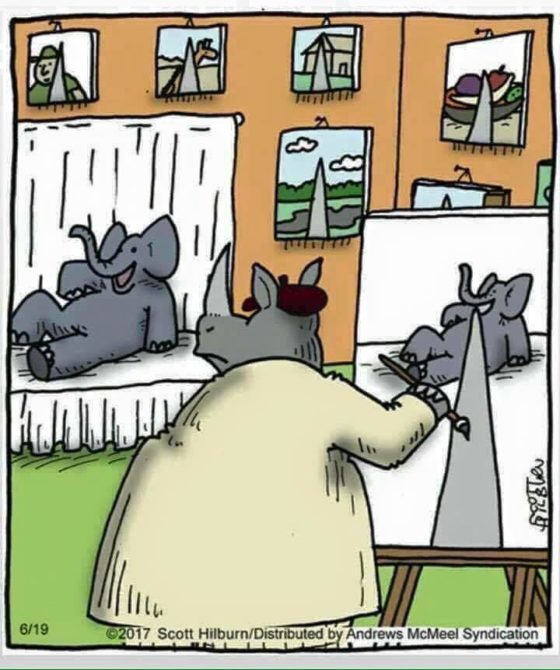
You have it. I have it. Most everyone you know has it.
It feels almost impossible to escape it. No matter what we see or develop feelings about, it ends up coloured by our old thoughts, our old wounds, our old successes.
Someone says, “Yay!” and we can’t echo the cheer, because we had a different experience.
Someone says, “I hate that!” about something we’re fond of.
And when we pat ourselves on the back because we have an open mind, because we see things clearly & others don’t, because we get it & they don’t…there’s a bit more.
See, everything we say comes from one place – our heart. And it’s great that each person’s heart is different from each other person’s heart. And whatever each of us sees & feels & knows is shaped by the life in front of us, the way we see it & feel it. There’s no way anyone else could see it exactly the same way.
And that’s beautiful. It’s our chance to share our angle on things with our friends, and sometimes with people who don’t have as good an angle.
It’s our chance to celebrate the people who see things differently (or not at all!) from us, because they have something to share, too. It gives us a chance of real understanding, while still learning to cherish the place we see life from as well.
And that’s the beginning of the chance to be kind.
Love to you all –
Brother Ian

Couple of years ago, I ran into some visitors to Friday Harbor, around the time I was wrapping up living there for nearly twenty years, on San Juan Island. One was the nicest of people, and she said, “Isn’t it hard to live in such an isolated place?”
In our follow-up, I discovered that she got up each morning for an hour drive to San Francisco, went into her office each day where she worked until the ride home, and then watched TV till bedtime.
She discovered that I usually walked into town, saying howdy or swapping stories or sharing a hug, met my different clients at coffeeplaces and cafés, and then had soccer or basketball with the kids after school, and then something to eat at our place (with friends over) or at someone’s potluck. My kids and I didn’t have a TV, at least partly because I didn’t know when we would have had time to look at it.
So, all in all, it was a good question – I should ask her, “Isn’t it hard to live in such an isolated place?”
I love it that you share so much of the world with me. Now I gotta get down to the beach, before sunset. Wanna come?
Love you, in this light –
Brother Ian
Be sure and check out Chris’ pictures – you’ll be glad you did!

From my friend Carmen:
Compassion is a far greater and nobler thing than pity.
Pity has its roots in fear and carries a sense of arrogance and condescension, sometimes even a smug feeling of “I’m glad it’s not me.”
As Stephen Levine says: “When your fear touches someone’s pain it becomes pity; when your love touches someone’s pain, it becomes compassion.”
To train in compassion is to know that all beings are the same and suffer in similar ways, to honour all those who suffer, and to know that you are neither separate from nor superior to anyone…
~Tibetan Book of Living and Dying, chapter 12
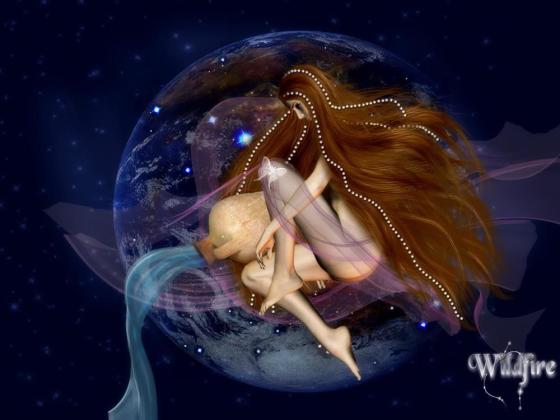
You & I learned this song ages ago, it seems, and it’s still a good one to start the day, to end kundalini yoga class, to wish on some good friend who’s leaving, or to sing with the kids before it’s time to dream.
Written by Mike Heron and shared with yoga students all over the world, it’s a little reminder that, as Ram Dass says, we’re all walking each other home.
I’m honoured to get this chance to sing it & play it for you.
May all love surround you, my friend.
Blessings –
Brother Ian
I had an idea I wanted to share with you. It’s one of those things that I wanted to see what you think. This draws from my experience as an actor onstage, a newspaper editor, and an admirer of this rather famous bit from Marianne Williamson:
Our deepest fear is not that we are inadequate. Our deepest fear is that we are powerful beyond measure. It is our light, not our darkness that most frightens us.
We ask ourselves, ‘Who am I to be brilliant, gorgeous, talented, fabulous?’
Actually, who are you not to be? You are a child of God. Your playing small does not serve the world. There is nothing enlightened about shrinking so that other people won’t feel insecure around you.
We are all meant to shine, as children do. We were born to make manifest the glory of God that is within us. It’s not just in some of us; it’s in everyone.
And as we let our own light shine, we unconsciously give other people permission to do the same. As we are liberated from our own fear, our presence automatically liberates others.
― Marianne Williamson, A Return to Love: Reflections on the Principles of “A Course in Miracles”
I hope it’s okay if I admit to you, my friend, that part of the reason this speaks to me is a lifelong habit of shrinking, of playing small. I often have have tried to avoid conflict, avoid confrontation, by pulling back from a fight. Occasionally this means that I am able to make a gracious exit from a problem, or to keep peace by letting a face-off fade. There’s a place for that, but I think I’m more concerned about when I shrink from engaging, when I know I need to stand up.
When I was acting, one of the things you gotta learn is when to “give stage,” which pretty much means if something is happening on stage that is bigger than whatever I’m doing, I need to not be “bigger” or more obvious (or louder or more active, or whatever) than the main action. This was hard for me to explain sometimes to the excitable grade eights I used to direct, but it makes for a better show.
And that’s where I think I get a bit balled up in my rules to live by. I know there’s a difference between giving stage & playing small, but I sometimes act as if one is the other, and when I really think about it, one is sometimes an excuse for not doing the other.
Which brings us to the third bit here: Sharing your voice.
 When I edited an online newspaper called the San Juan Update for fifteen years, it was an exercise is finding my voice. Should I print this? Should I post that? Was it my place to impose what I thought on people? What was useful about this was the discovery how the writing & the decisions were easier once I knew “what I say.”
When I edited an online newspaper called the San Juan Update for fifteen years, it was an exercise is finding my voice. Should I print this? Should I post that? Was it my place to impose what I thought on people? What was useful about this was the discovery how the writing & the decisions were easier once I knew “what I say.”
Not what I had to say, or what I thought I should say, or what I better be careful about. Instead, the easiest writing was when I was speaking to my values (community working together to share & heal) and knowing there were people in the readership (we had about 3000 daily readers). And that’s what I do, what I say. And the words come.
As a friend during that period says, “You find your voice when your heart comes to play.”
In theatre, “sharing your voice” is what a director asks a timid actor to do, so everyone can hear his or her lines.
I hope that for you, my friend. Speak out & make sure the people in the back row can hear you. You have so much to give, and the people in the world are poorer when you hold it in, or hold it down.
Play on!
Love & blessings,
Brother Ian
 I don’t know if I’ve learned anything yet! I did learn how to have a happy home, but I consider myself fortunate in that regard because I could’ve rolled right by it.
I don’t know if I’ve learned anything yet! I did learn how to have a happy home, but I consider myself fortunate in that regard because I could’ve rolled right by it.
Everybody has a superficial side and a deep side, but this culture doesn’t place much value on depth — we don’t have shamans or soothsayers, and depth isn’t encouraged or understood. Surrounded by this shallow, glossy society we develop a shallow side, too, and we become attracted to fluff.
That’s reflected in the fact that this culture sets up an addiction to romance based on insecurity — the uncertainty of whether or not you’re truly united with the object of your obsession is the rush people get hooked on. I’ve seen this pattern so much in myself and my friends and some people never get off that line.
But along with developing my superficial side, I always nurtured a deeper longing, so even when I was falling into the trap of that other kind of love, I was hip to what I was doing.
I recently read an article in Esquire magazine called ‘The End of Sex,’ that said something that struck me as very true. It said: “If you want endless repetition, see a lot of different people. If you want infinite variety, stay with one.” What happens when you date is you run all your best moves and tell all your best stories — and in a way, that routine is a method for falling in love with yourself over and over.
You can’t do that with a longtime mate because he knows all that old material. With a long relationship, things die then are rekindled, and that shared process of rebirth deepens the love. It’s hard work, though, and a lot of people run at the first sign of trouble.
You’re with this person, and suddenly you look like an asshole to them or they look like an asshole to you — it’s unpleasant, but if you can get through it you get closer and you learn a way of loving that’s different from the neurotic love enshrined in movies. It’s warmer and has more padding to it.
Joni Mitchell